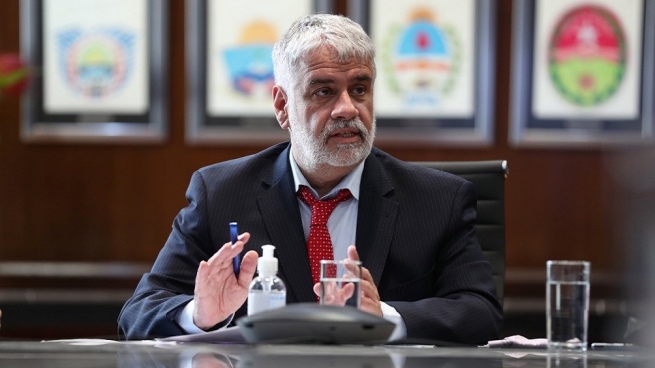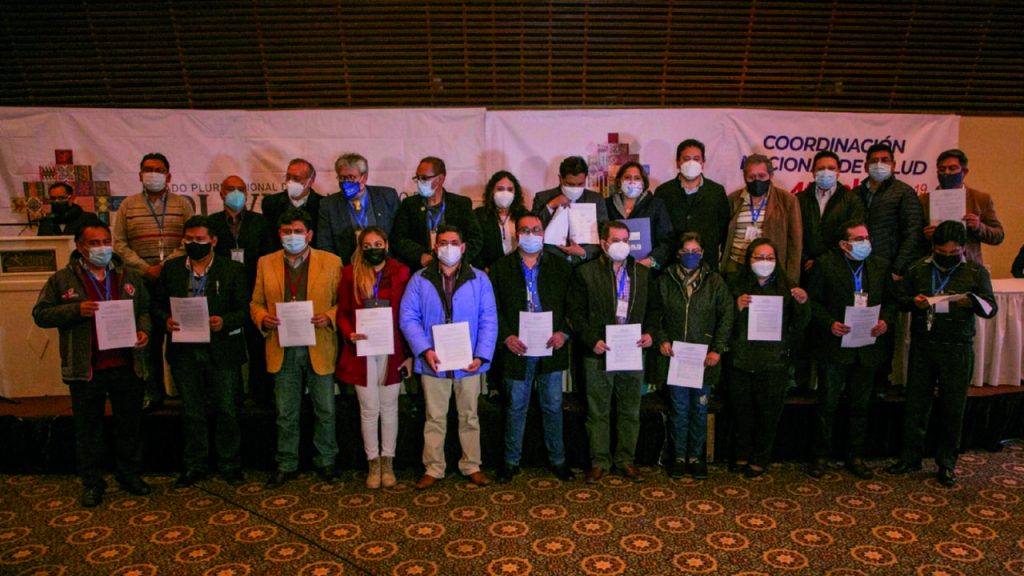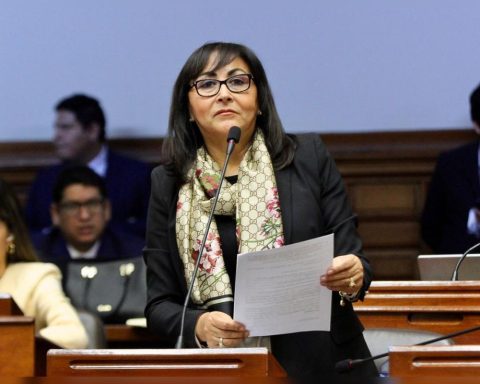The Secretary of Domestic Trade, Roberto Feletti, expressed this Friday the intention to continue with a policy of decoupling domestic and international food prices next year, after reaching, this week, agreements to keep the values of bread and bread stable. five cuts of meat for the remainder of December.
“We are in line with (the Ministry of) Agriculture and with its minister (Julián) Domínguez, seeing the different decoupling mechanisms,” Feletti said this Friday morning in dialogue with radio AM750.
“If there is no decoupling, no one works miracles. The international price will have a full impact on the domestic price. It is not possible to sustain a regulated basket price policy without decoupling,” the official warned.
Added that You cannot tell an Argentine “that the meat or bread he buys he is going to pay for as they pay in euros in a restaurant in Germany. That is what is currently in tension and under discussion in Argentina. “
“I believe that the decoupling is going to come and it will be. At least I think that at Christmas and New Years, we already have that assured, because of how the information is coming to me,” he assured.
According to Feletti, the agreements reached with bread and meat, two products influenced by international prices, allow “to complete the gondola”, by joining the basket of processed products from + Care Prices that the Government launched last October.

Bread prices
In the case of bread, after a meeting that Feletti held on Thursday with representatives of the milling and bakery industry, the parties assumed the commitment to keep both the price of bread (currently between $ 200 and $ 240 depending on the locality) and the stock market stable. of flour of 25 kilos.
“We reached an agreement with bakers and millers, where the millers are going to keep the bag of flour stable until the end of the year to spend the holidays, and the bakers also commit to a supply of bread at a stable price,” Feletti explained.
“The truth It was an interesting and very productive meeting where our sector was asked to commit to being able to maintain a certain stability with the price of flour until the end of the year, while they analyze some format that in the future decouples international volatility from the domestic market, “Diego Cifarelli, president of the Argentine Federation of the Milling Industry, told El Uncover Radio this morning.
Meanwhile, from the link of the bakers, Raúl Santoandré, president of the Industrial Bakery Federation of the Province of Buenos Aires, indicated in dialogue with Radio Del Plata that “if there is no variety of increase, in this case, of the main The raw material, which is flour, is going to strictly respect the price of bread from here to the festivities. “

In addition to the freezing of values, another of the definitions of the meeting was to form a table to coordinate a work schedule from January, in order to “develop a comprehensive policy that allows stability and remove volatility from the price of wheat for the domestic market.”
“The commitment that Secretary Roberto Feletti has taken to set up a work table is fundamental, where I even believe that he will accompany the Ministry of Agriculture, and work for next year in a future projection, of an agreement that is still under study, which will be completed and will be announced by the authorities, “said the representative of the bakers.
“If there is no variety of increase, in this case, of the main raw material that is flour, the price of bread from here to the holidays will be strictly respected”Raúl Santoandré
Santoandré did not give more details about the agreement that will allow “to help the bakery industry”, but he did slip that it could be some type of “subsidy” or “subsidized flour.”
For its part, Cifarelli considered that the decoupling of domestic and international wheat prices is a “complex issue” and minimized the impact of flour and wheat on the final price of bread. since, for the representative of the millers, the problem is the “intermediations”.
“A kilo of wheat is worth $ 25, a kilo of flour $ 40, and then a kilo of bread $ 200. Obviously, as industrialization advances, the costs that are impossible to manage begin, which are those that must be worked. intermediaries are not so expensive, “he said.
Meat prices
The bread agreement thus joins the one reached with the price of meat, where, after an agreement of the Ministry of Internal Trade with refrigerators and supermarkets, an increase in the supply of five cuts of beef was ordered last Monday, in the whole country, with prices that will be “significantly lower than the current market value.”
In this way, in adhered points of sale (including large supermarket chains) can be obtained a kilo of asado at $ 549, matambre at $ 599, empty at $ 599, asado cover at $ 499 and skirt at $ 399, during the days 22 to 24, and 29 to 31 of this month, prior to the Christmas and New Years holidays.
After the completion of this agreement, Feletti anticipated, at the beginning of this week, that from January “a discussion will begin” about maintaining the seven cuts whose export will continue to be restricted, “probably not at these Christmas prices, but at compatible affordable prices. with the salary “.

January will also be the month where it will come into effect a new basket of gondola products which will replace + Precious Care, after its completion on January 7.
The same, said the secretary, is currently in the process of negotiation with “payroll exchanges with large food companies,” and will contain between “1,300 and 1,400 products, with a reviewable quarterly adjustment guideline and valid for one year. “
“It is a complex negotiation because it is point to point, hand in hand,” said the secretary, and explained that there are “very strong discussions” in products such as mayonnaise where an international price such as oil affects.

















